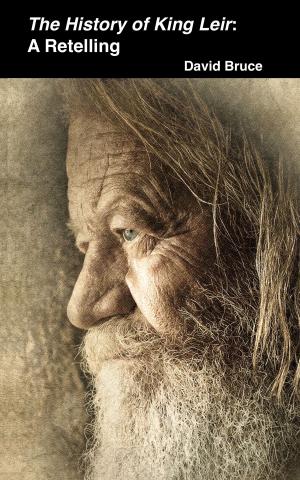The Kindest People: Heroes and Good Samaritans (Volume 7)
Nonfiction, Religion & Spirituality, Philosophy, Ethics & Moral Philosophy, Health & Well Being, Self Help, Self Improvement, Motivational| Author: | David Bruce | ISBN: | 9781476190532 |
| Publisher: | David Bruce | Publication: | August 19, 2012 |
| Imprint: | Smashwords Edition | Language: | English |
| Author: | David Bruce |
| ISBN: | 9781476190532 |
| Publisher: | David Bruce |
| Publication: | August 19, 2012 |
| Imprint: | Smashwords Edition |
| Language: | English |
A sample: The least qualified athlete at the 2012 Olympic Games in London was also perhaps its bravest and most important hero. Although some people from her home country of Saudi Arabia called her one of the “Prostitutes of the Olympics,” Wojdan Shaherkani, age 16 and 241 pounds, became the first female athlete from Saudi Arabia to compete in any Olympic event. Competing in heavyweight judo, Ms. Shaherkani lost in approximately 90 seconds to Puerto Rico’s Melissa Mojica, who is ranked 24th in the world. Ms. Mojica knew the meaning of Ms. Shaherkani’s being able to compete in the Olympics. Ms. Mojica said, “I did not feel pity for her. I felt a lot of respect.” Ms. Shaherkani and her father, Ali, hugged after the loss. Ms. Shaherkani had been studying judo for only two years, and the Olympics were her first official competition. She said, “I was scared a lot, because of all the crowd around, and I lost because this is the first time.” Saudi Arabia did not broadcast the competition. Still, Ms. Shaherkani said, “Hopefully, this is the beginning of a new era.” Her Saudi representative, Hani Kamal Najm, said, “I feel this is a milestone we’ve achieved.” As Saudi officials had demanded, Olympic officials allowed Ms. Shaherkani to wear a modified hijab. Another Saudi woman, Sarah Attar, who was also well covered, later competed in the 800-meter run. Ms. Attar said, “It is the hugest honor to be here to represent the women of Saudi Arabia. It is an historic moment. I hope it will make a difference.” She added, “For women in Saudi Arabia, I think this can really spark something to get more involved in sports, to become more athletic. Maybe in the next Olympics, we can have a very strong team to come.” She has a Saudi father and an American mother and is a student at Pepperdine University near Los Angeles, California. Two other Islamic countries, Qatar and Brunei, brought female athletes to the Olympics for the first time. Ms. Attar’s coach, Joaquim Cruz, who was the 1984 Olympic 800-meter run champion, agreed to coach her after he heard her story. He said, “She’s a kid. She’s 19 years old and this is like going to Disneyland for the first time. Everybody else is concerned about the press, the media, what people are going to say. She’s just taking a ride.” The crowd gave her a standing ovation as she finished the race in last place. Ms. Attar’s father, Amer, said, “To see how the crowd reacted to her when she was running was very touching and very exciting.” Ms. Attar said, “I mean, seeing the support like that, it’s just an amazing experience. I was so excited to be a part of it. I really hope this can be the start of something amazing.” Mr. Cruz said, “She’s a dream come true for a lot of female athletes who dream about coming here and didn’t have that opportunity. She’s also a dream for a lot of generations to come. They can dream about that now, where they couldn’t dream about it before.”
A sample: The least qualified athlete at the 2012 Olympic Games in London was also perhaps its bravest and most important hero. Although some people from her home country of Saudi Arabia called her one of the “Prostitutes of the Olympics,” Wojdan Shaherkani, age 16 and 241 pounds, became the first female athlete from Saudi Arabia to compete in any Olympic event. Competing in heavyweight judo, Ms. Shaherkani lost in approximately 90 seconds to Puerto Rico’s Melissa Mojica, who is ranked 24th in the world. Ms. Mojica knew the meaning of Ms. Shaherkani’s being able to compete in the Olympics. Ms. Mojica said, “I did not feel pity for her. I felt a lot of respect.” Ms. Shaherkani and her father, Ali, hugged after the loss. Ms. Shaherkani had been studying judo for only two years, and the Olympics were her first official competition. She said, “I was scared a lot, because of all the crowd around, and I lost because this is the first time.” Saudi Arabia did not broadcast the competition. Still, Ms. Shaherkani said, “Hopefully, this is the beginning of a new era.” Her Saudi representative, Hani Kamal Najm, said, “I feel this is a milestone we’ve achieved.” As Saudi officials had demanded, Olympic officials allowed Ms. Shaherkani to wear a modified hijab. Another Saudi woman, Sarah Attar, who was also well covered, later competed in the 800-meter run. Ms. Attar said, “It is the hugest honor to be here to represent the women of Saudi Arabia. It is an historic moment. I hope it will make a difference.” She added, “For women in Saudi Arabia, I think this can really spark something to get more involved in sports, to become more athletic. Maybe in the next Olympics, we can have a very strong team to come.” She has a Saudi father and an American mother and is a student at Pepperdine University near Los Angeles, California. Two other Islamic countries, Qatar and Brunei, brought female athletes to the Olympics for the first time. Ms. Attar’s coach, Joaquim Cruz, who was the 1984 Olympic 800-meter run champion, agreed to coach her after he heard her story. He said, “She’s a kid. She’s 19 years old and this is like going to Disneyland for the first time. Everybody else is concerned about the press, the media, what people are going to say. She’s just taking a ride.” The crowd gave her a standing ovation as she finished the race in last place. Ms. Attar’s father, Amer, said, “To see how the crowd reacted to her when she was running was very touching and very exciting.” Ms. Attar said, “I mean, seeing the support like that, it’s just an amazing experience. I was so excited to be a part of it. I really hope this can be the start of something amazing.” Mr. Cruz said, “She’s a dream come true for a lot of female athletes who dream about coming here and didn’t have that opportunity. She’s also a dream for a lot of generations to come. They can dream about that now, where they couldn’t dream about it before.”















